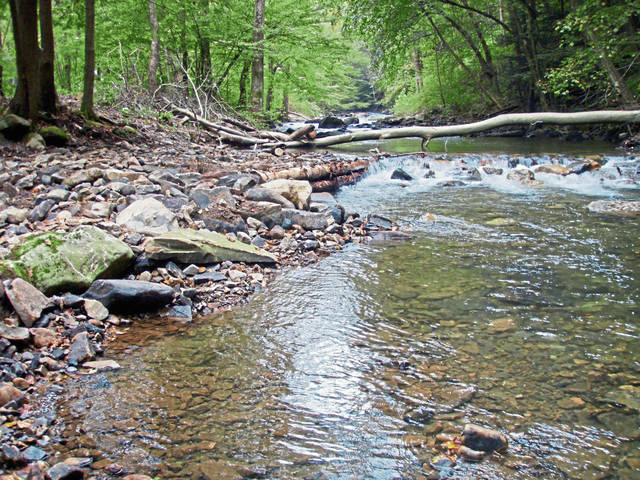Here in Western Pennsylvania, it can feel miraculous that wild trout have persisted through all that has been thrown at them: clear-cut logging, coal mining, oil and gas drilling.
And yet an hour’s drive east from Pittsburgh, trout anglers like me face a bounty of choices. Mill Creek, Indian Creek and Pike Run are Class A wild trout streams running off Laurel Ridge on public lands. The Youghiogheny River in Ohiopyle State Park is a trophy trout tailwater. We can fish the Loyalhanna, Laurel Hill and Linn Run and a dozen other productive streams.
Today in Washington, Clean Water Act protections for many of our streams and rivers are under attack. It’s remarkable to learn that the Environmental Protection Agency is putting forth a proposal that would remove protections for thousands of stream miles and thousands of acres of wetlands (“Landmark environmental protections being rolled back,” Dec. 8, TribLIVE). At least 18 percent of stream miles and 50 percent of wetlands would lose federal protections.
This is not abstract for me. It would leave the headwaters of many of these streams that I fish unprotected by the Clean Water Act, opening the door to pollution.
Considering the long history of environmental indignities our streams have faced, and the critical role this landmark legislation has played in protecting our waters since 1972, undermining this landmark legislation would be a major mistake.
Even if they run dry, the small streams and headwaters in question are essential to a healthy wild trout population. Fish rely on these tributaries for spawning and nursery grounds, and for refuge from predators and high water temperatures during the summer months. The wetlands in question filter pollution and recharge groundwater that feeds streams.
But it’s not just the trout, and the trout fisherman, who should be worried about this.
It’s also the tourism businesses that benefit from angler dollars in the Laurel Highlands region and beyond. Outdoor recreation is a $46 billion industry in Pennsylvania and is responsible for 390,000 jobs, according to a new analysis by the Theodore Roosevelt Conservation Partnership. Hunting and fishing alone are responsible for $2.3 billion in economic activity.
It’s also the industries and farms that rely on clean water for their production.
And it’s the millions of Americans whose drinking water depends on these headwater and seasonal streams.
The best way to protect our water is to control pollution at its source, in the headwaters and wetlands that feed our rivers, lakes and bays. Under this new regulation, dry creek beds could become a place to dump animal waste or store gas tanks, for example. You can imagine what will happen the next time it rains. We all live downstream.
Sportsmen like me know that clean water isn’t a partisan issue. Hunters and anglers are the original conservationists. We helped establish some of Pennsylvania’s first clean water policies in the 1960s.
Unraveling the longstanding protections of the landmark Clean Water Act doesn’t make sense, and all of us who care about clean water should make sure our representatives in Washington understand that by telling the EPA to go back to the drawing board and develop a proposal that doesn’t put our streams at risk.
Dale Kotowski is past president of the Chestnut Ridge Chapter of Trout Unlimited.








